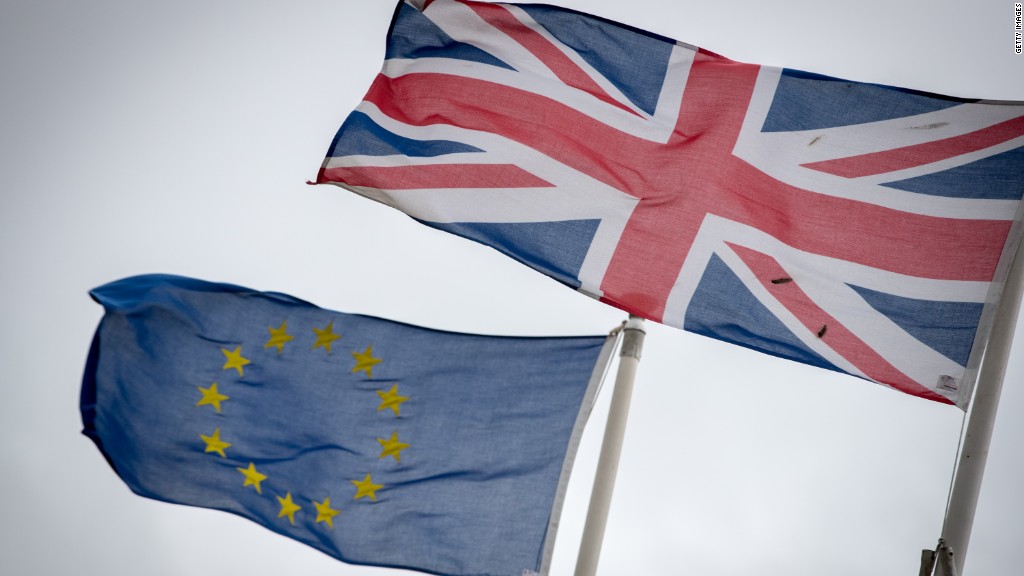
Last week, 17 million British voters went to the polls and chose to exile themselves from the European Union. Meanwhile, I was busy trying to become one of the U.K.'s newest immigrants.
I've spent the past decade working as a journalist in the United States, Hong Kong and now India. My next posting, scheduled to begin in just a few months, will take me to London.
That's why, just days after 52% of U.K. voters checked the "Leave" box, I was completing my employment paperwork in New Delhi. The waiting room at the immigration office was covered in cheery tourism posters: London! Westminster Abbey! Big Ben!
News alerts on my smartphone, meanwhile, painted a different picture: The U.K.'s political establishment was crumbling, stocks had crashed and the pound had plummeted to a 30-year low (taking the value of my salary with it).
Related: Richard Branson says Brexit killed his big deal
This was, to put it mildly, something of a shock. I'm an American, and we tend to think of Brits as reserved, composed and exceptionally calm under pressure. Perhaps a touch idiosyncratic, but unfailingly reasonable.
These are stereotypes of course, but the vote and its aftermath do feel decidedly un-British. Other countries are supposed to be emotional, defensive or impetuous. But never Britain.
Yet in the space of 24 hours, the U.K. had voted to dissolve a four-decade partnership with some of its closest allies, its prime minister had resigned and the knives were out for the opposition leader.
As I sat in the immigration office, I couldn't help but feeling as though I had been invited to a genteel dinner party, only to show up and discover the hosts attacking each other with sharpened cutlery.
Related: Brexit's broken promises
The language of the debate also struck me. "Take back control" works brilliantly as a political slogan, but its ambiguity asks a question Britain has been unable to answer since the end of Empire: Who are we? What should we take back control of, exactly?
It's now been nearly a week since the vote, and the country's political parties are still drifting, rudderless. Stock markets have stabilized but the pound is still 10% down. Scotland's leaders are threatening to pull their country out of the U.K.
More troubling are reports of racist abuse, much of it targeting workers from EU countries. Mainstream politicians have been quick to condemn the attacks, but it's not easy to dismiss some of the darker forces that were conjured during the campaign.
One can't help but feel that the stakes are very high. My fiancée is a British citizen, and her social media feeds are filled with stories of frightened immigrants, political chaos and lost business opportunities.
Related: The autos industry can't survive without Europe
Asked for his assessment of the vote, Bill Bryson, a U.S.-born travel writer and keen observer of British life, said that "Britain used to be a much more orderly and well-behaved society."
"Now the British have become more greedy and selfish, more like the American model, except they haven't quite mastered it yet," he told The Times.
That may be true. But as I watched David Cameron answer questions from members of parliament on Monday, I was struck by the quality of the debate, and the prime minister's determination -- in the face of political defeat -- to discharge his duties.
Cameron didn't have all the answers, but he seemed to have regained some of Britain's famous "Dunkirk spirit."
To me, that's an encouraging sign. But the U.K. will need buckets more of that spirit in the coming months. Will it continue to be the outward-looking country that attracted so many immigrants? Or will it retreat into itself?
